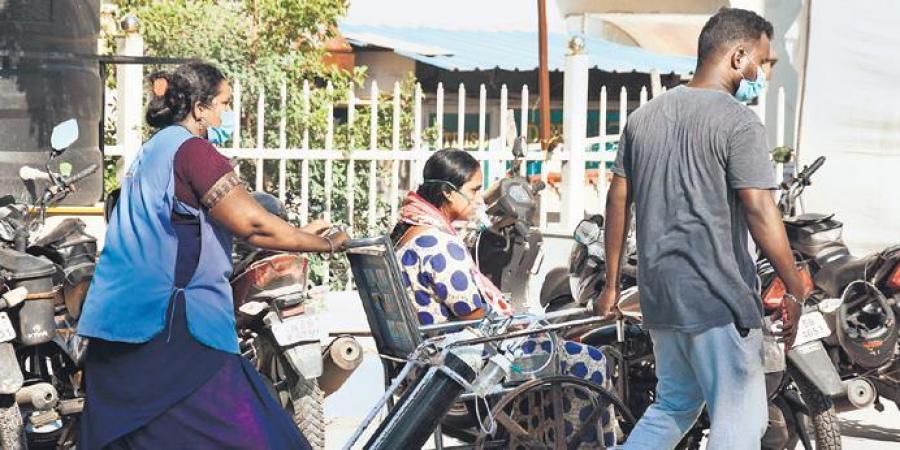CURRENT AFFAIRS
Get the most updated and recent current affair content on Padhaikaro.com
Medicine beyond borders in the subcontinent
- Integrity Education, Delhi
- 06, May 2021

This essay is built upon a simple humanitarian premise, which is that countries in the Indian subcontinent, with many differences between them, could use the lessons from the COVID pandemic and create a new regional crack force - of health professionals, doctors, nurses and allied service people.
There are many reasons why this is a good idea, not least because of the shared challenges countries in South Asia face. Take the current situation on COVID-19: India, fighting a difficult second wave, now has more than 3,50,000 daily cases of infections from the coronavirus; neighbouring Pakistan had around 1,40,000 cases in April, its worst month since the crisis began; cases have been spiking in Sri Lanka too; Nepal just had its steepest single day surge, while Bangladesh is having a relatively better time dealing with the pandemic, but concerns remain high.
Overall, South Asia is one of the worst affected regions of the world, and it is also an area with historic challenges in healthcare infrastructure. But it has - over the years - developed one position of strength: It has great healthcare professionals.
Doctors, nurses and other healthcare officials from around South Asia are some of the finest in the world. In different parts of the world, especially in America and Europe, some of the finest doctors and nurses are of South Asian origin.
This existing talent pool could be structured as a crack force of South Asian medical professionals who could rise to tackle major healthcare emergencies in the region.
Such a team would be made up of some of the finest doctors, nurses and other health workers from all South Asian countries and their task would be to come together during a crisis and help resolve it no matter where it unfolds in the region.
These health workers would not be confined by politics and they would not be trapped in any disputes or conflict between two South Asian countries. Their task and role would be devoid of political identity - they would play only a critical humanitarian task.
By working across borders in real-life crisis situations in healthcare, they would be able to gather critical cross-country experience in tackling problems in every nation and be able to refer and compare that experience for the benefit of the entire region.
This team would have its own meetings, schedules and trainings that would be untied to any regional forum (for instance like the SAARC). This would help this team of doctors, nurses and others work solely in resolving crisis issues wherever these occur.
Prime Minister Narendra Modi has already suggested a framework for a special visa for health workers across the region and a combined air ambulance facility. This could be expanded into a full-fledged medicine corps for South Asia - healthcare officials who would help, and who could even be airdropped, in regions of extreme emergency.
A special visa regime could give such a mission of critical health workers the flexibility and speed to be of maximum assistance. If you consider with care what the main lesson of the COVID pandemic is, it is easy to see the kind of crisis South Asia might face in the future.
Behind the spread of the COVID-19 pathogen lies the question of animal viruses crossing over to human populations. As population pressures and desire for mineral and other forms of extraction leads to more and more environmental degradation across the region, the chances of disease spreading widely are high. South Asia is also one of the regions of the world that is most vulnerable to climate change.
Pressures on healthcare will also come from rising temperatures, melting glaciers, deforestation and other issues of climate change. As South Asia becomes more polluted, with more dense urban populations, issues of waste management might become severe, as of course would air pollution.
Since South Asian neighbours share so many environmental resources, they must be more aware of their common future, and the fact that in order to thrive, deeper, more engaging cooperation is vital. The COVID-19 pandemic has shown that viruses do not respect borders, and no one is really safe unless everyone is safe.
Such cooperation and collaboration would be critical for the future to meet the challenges that the region faces. It is important for all of us to realise that a new difficult age of healthcare challenges triggered by environmental issues is dawning upon us, and therefore the cooperative structures of yesterday are unlikely to be able to meet the demands that are to come soon.
Therefore, it is important to consider the creation of such a cross-national body devoted to health emergencies for our common better future.
Sources : The News Indian Express